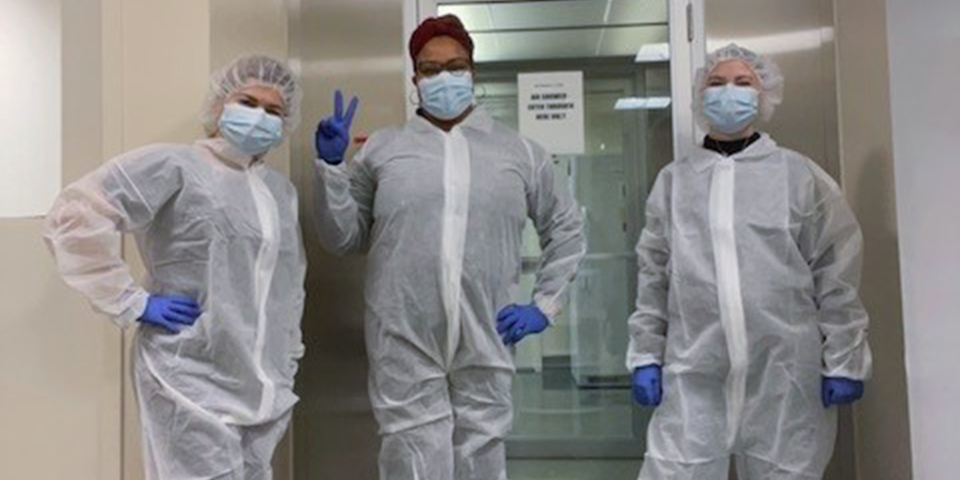Juliet Morrison, Ph.D.
University of California

Why are you proud to be a woman working in science?
“I’m proud to be a scientist because it is a challenging and intellectually fulfilling career. I’m always learning and growing! However, acceptance and recognition of women as scientists is a relatively recent phenomenon. In the past, women were relegated to “assisting” men, and most women in science were not recognized for their efforts and brilliance. I am here today because of the hard work and advocacy of Black and female scientists before me. There is still more work to do because gatekeeping continues to be a problem.”
Why is it important for women to be in science fields?
“Quite frankly, male-dominated science has not served women well. Women make up more than 50 percent of the population, yet our medical issues are routinely ignored. Many painful gynecological procedures are done without anesthetic and this stems from the fact that female pain is routinely dismissed. Even clinical trials exclude women, and that means that drugs have come to market that work well in men but have adverse effects in women. Luckily, we know that diverse teams lead to better outcomes. Women bring new perspectives to the table and can drive the study of important issues that were ignored in the past. Outside of that, women do great science just like men. We need all hands on deck as we rise to the challenges of climate change, emerging infectious diseases, and all that the future holds.”
Why is it important to encourage girls to pursue science as a career?
“Girls are often discouraged from pursuing science as a career. It’s not often blatant, but the effect is the same. From the moment we enter this world, society tells us that only certain kinds of people can be intelligent and credible. That is why we have to counteract these negative messages with big doses of positivity, and we have to start doing it early. We need to engage young girls and encourage them to pursue their interests. I would not be here today without the encouragement of my loved ones, teachers, and mentors.”